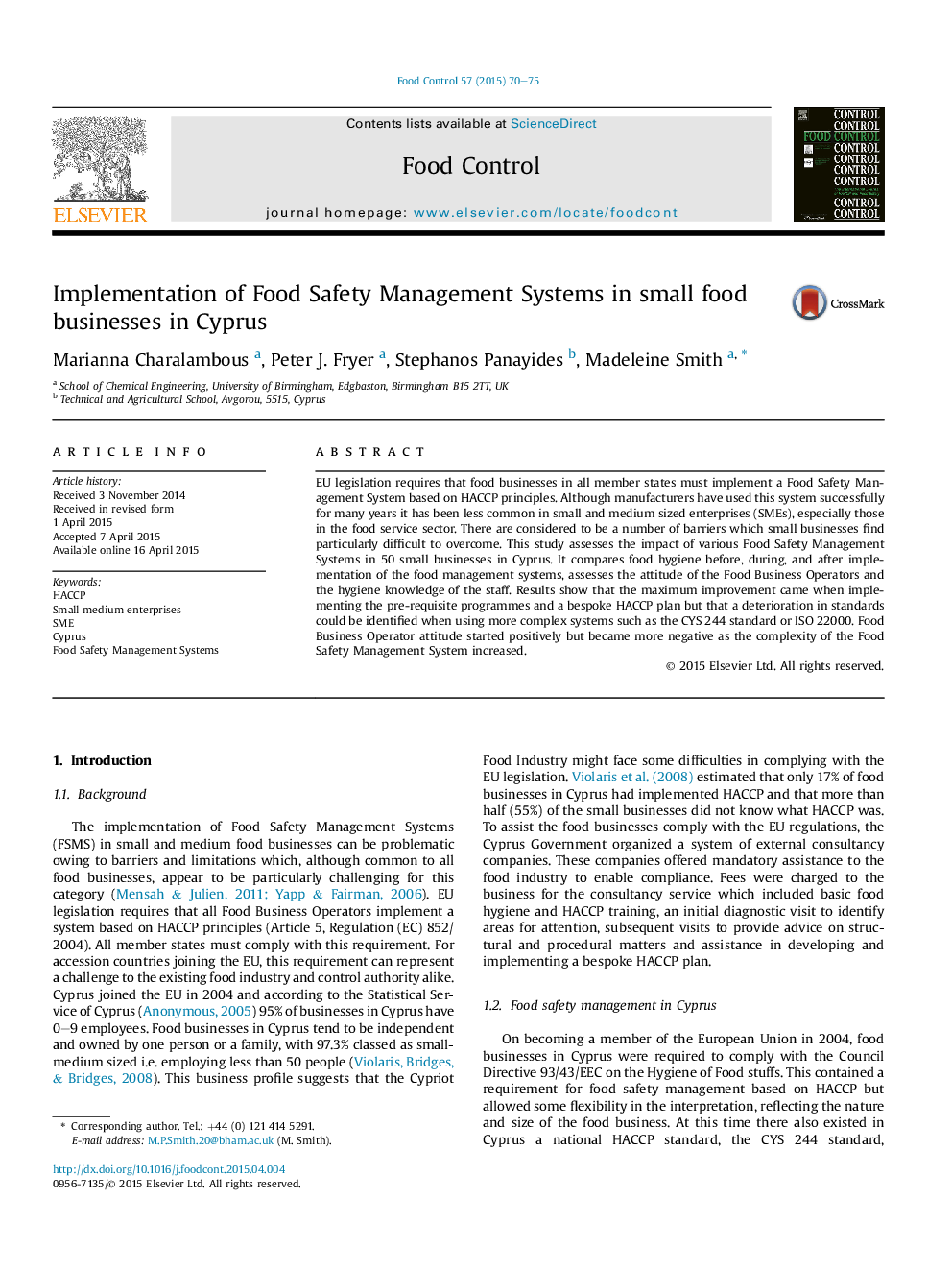| Article ID | Journal | Published Year | Pages | File Type |
|---|---|---|---|---|
| 6390700 | Food Control | 2015 | 6 Pages |
â¢Food safety management implementation was evaluated in 50 small food businesses.â¢Maximum improvement in hygiene coincided with simple management systems.â¢Complex systems such as ISO 22000 resulted in a deterioration of hygiene.
EU legislation requires that food businesses in all member states must implement a Food Safety Management System based on HACCP principles. Although manufacturers have used this system successfully for many years it has been less common in small and medium sized enterprises (SMEs), especially those in the food service sector. There are considered to be a number of barriers which small businesses find particularly difficult to overcome. This study assesses the impact of various Food Safety Management Systems in 50 small businesses in Cyprus. It compares food hygiene before, during, and after implementation of the food management systems, assesses the attitude of the Food Business Operators and the hygiene knowledge of the staff. Results show that the maximum improvement came when implementing the pre-requisite programmes and a bespoke HACCP plan but that a deterioration in standards could be identified when using more complex systems such as the CYS 244 standard or ISO 22000. Food Business Operator attitude started positively but became more negative as the complexity of the Food Safety Management System increased.
